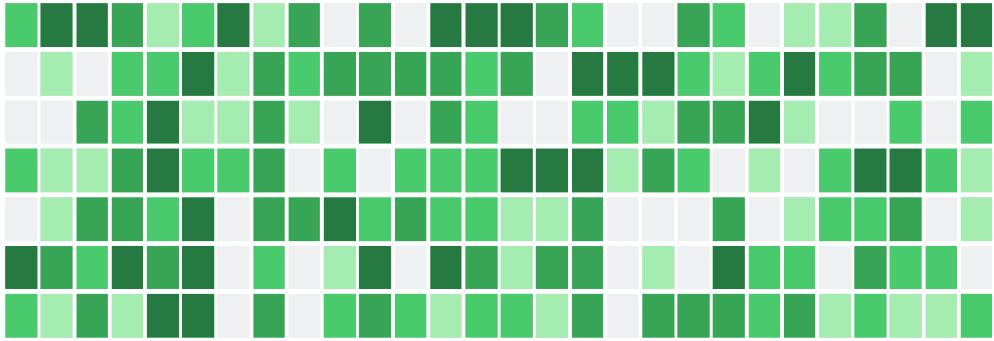Data Analysis Jobs to Get Hired in 2024
Data Analytics & Data Science are exciting fields and the demand is growing exponentially. If you’re interested in working with data and want to use your skills in the real world, then this article will help you find out what jobs require it.
With a skill in data you can become a data analyst, data scientist, data engineer, machine learning engineer, business intelligence analyst, just to name some of the careers.
Data science is a hot field right now because technology companies are collecting more data than ever before. The demand for professionals who can make sense of that data has grown rapidly as well. Data science combines computer science and statistics so it can be considered a complex field but if you’re interested in learning more about it then check out our pathway to becoming a Data Scientist with our Intro to Data Science 2-week course.
Data Analyst
A data analyst is a person who works with data. A data analyst is responsible for collecting, analyzing, and reporting data. Data analysts work with the data in order to make business decisions. They use specialized software like Tableau to analyze this information and help make important business decisions based on their findings.
The goal of a Data Analyst is to understand the information that’s being presented, then take action based on their understanding of the facts presented by the data.
Average Base Salary: $65,812.
Data Scientist
Data scientists are in high demand. It’s not uncommon for a data scientist to make six figures, and they’re often given a ton of autonomy over their work. The best way to get started as a data scientist is to have some experience with programming, since you’ll be doing a lot of it in your new job. Beyond that, though, there isn’t really anything specific you need in terms of formal education or training—and if you do find yourself lacking one area of expertise, there are plenty of online resources out there that can help fill those gaps (including our very own!).
It’s also worth noting that while working at large companies might seem like the easiest route into this field—after all, they’re usually better equipped than smaller businesses—the truth is that many startups are now hiring data scientists because they need someone who can help them gather insights from their customer base in order to grow their business faster than their competitors.
Average Base Salary: $101,460.
Data Engineer
The Data Engineer is responsible for managing the data pipeline. They run queries and work with their team’s data scientists to build models that can be used in production. The position requires knowledge of statistics, machine learning, distributed systems and databases such as Hadoop and Spark.
Data engineers are responsible for building and maintaining data infrastructure. This includes ETL (Extract Transform Load), data warehousing, storage systems and production analytics environments. In addition to helping with development tasks like these they also ensure that their company has sufficient compute resources available at all times to support their workloads.
Average Base Salary: $114,835.
Machine Learning Engineer
A machine learning engineer is someone who can use a combination of computer science and data science skills to build systems that analyze large amounts of data and make predictions based on the data.
Machine learning engineers are typically responsible for building, testing, and maintaining machine learning models. They will also collaborate with software developers to create user-friendly interfaces for users to interact with these models. These professionals may also need to analyze customer feedback on their products as they test them out in order to improve them further.
Average Base Salary: $110,034.
Business Intelligence Analyst
A BI Analyst is a person who works in the field of Business Intelligence.
BI analysts are responsible for gathering, analyzing, and reporting data to help businesses make better decisions.
Business intelligence analysts are typically responsible for the design and implementation of business intelligence solutions. They may also be responsible for maintaining current systems as well as upgrading or adding new features or applications to existing systems.
Average Base Salary: $89,922.
Business Analyst or Management Consultant
Business analysts and management consultants are two positions that rely heavily on data analytics. A business analyst is someone who looks at a company’s internal processes and procedures, as well as customer feedback, to help improve the organization’s efficiency by identifying problems within these areas. Business analysts may also be tasked with coming up with solutions to fix these problems or making recommendations for how they can be resolved.
Management consultants are hired by businesses (or organizations) to give advice on how best to run their business or organization. This could mean anything from helping a company develop new strategies for success, evaluating the performance of existing products and services, discovering ways to reduce costs without impacting quality of service delivery, advising organizations on mergers/acquisitions opportunities and much more! The work of both business analysts & management consultants is often described as being “high stakes” because they’re responsible for providing valuable insights into some of the most important aspects regarding how an organization operates—so if something goes wrong there could potentially be huge consequences too!
Data Architect
As the name suggests, data architects are responsible for designing and implementing data management strategies. They work with business stakeholders to understand their data requirements, and then design databases that support those requirements. Data architects must have a thorough understanding of how the database is going to work, including how it scales as the business grows or changes over time.
Software, Database and Systems Administrator
Software Engineer
Software engineers are experts at writing and testing code, which is the process of combining computer hardware and software to create programs. Software engineers are responsible for designing the software that runs on computers, phones and other devices. They use a wide range of skills from advanced math to programming languages like Java or C++.
Database Engineer
Database engineers design databases that store large amounts of data in a useful way. Some databases have a simple structure while others have complex structures with many tables linked together in complex ways. Database engineers must be able to deal with these different kinds of databases and understand how they work so they can design better systems for storing data efficiently. They also need advanced knowledge about building websites using HTML (Hyper Text Markup Language) or PHP (Hypertext Preprocessor).
Database Administrator
Database administrators (DBAs) are responsible for the management and maintenance of databases. They use database software to create, maintain and manage databases. DBAs work with a variety of database systems, including relational and object-oriented databases.
Database developers are responsible for creating new features for existing products or implementing changes to the structure of a database in order to solve technical problems or improve performance. They also help users design new databases by gathering requirements from them and presenting options based on available resources.
Database Developer or Database Programmer
A database developer or programmer is a person who builds and maintains databases. They can be the same person, but they’re different roles.
A database developer is more likely to focus on the design, development and implementation of a database in an organization as well as its usability and security features.
A database programmer, however, spends most of their time writing programs that interact with databases based on user requirements.
Big Data Architect, Analyst, or Engineer
Big data is a collection of data sets so large and complex that it becomes difficult to process using on-hand database management tools or traditional data processing applications. It’s an extremely hot job market, with some companies offering a six-figure salary for entry-level positions.
The role of the big data architect is to design and develop technical solutions that can effectively store, process, analyze and communicate large volumes of structured or unstructured information. The architect designs and builds the infrastructure for the project and may be responsible for its testing as well as maintaining it after launch.
Quantitative Analyst (aka. Statistician)
A quantitative analyst (or statistician) is someone who uses mathematics and statistics to solve business problems. They analyze data, create models, and make recommendations based on the data they collect. Quantitative analysts can work in a variety of industries including finance, healthcare, retail and manufacturing.
The tasks that quantitative analysts perform are often very technical (such as developing statistical models), but can also be highly creative (like designing new ways to measure supply chain efficiency).
The demand for data analysts and professionals is constant, but the supply of these positions is low. If you have a skill in data there are many jobs available and they pay well.
Additional Resources
You might like these

April 11, 2024
Find out what to look for to the best data analytics bootcamp. Spoiler: the reviews tell you everything you need to know.

Why learn Python? Discover the versatility, ease of use, and application of this fundamental coding language.

Machine learning is more understandable than you may think. Read about the fundamentals of ML and learn how to build machine learning models with LearningFuze.







